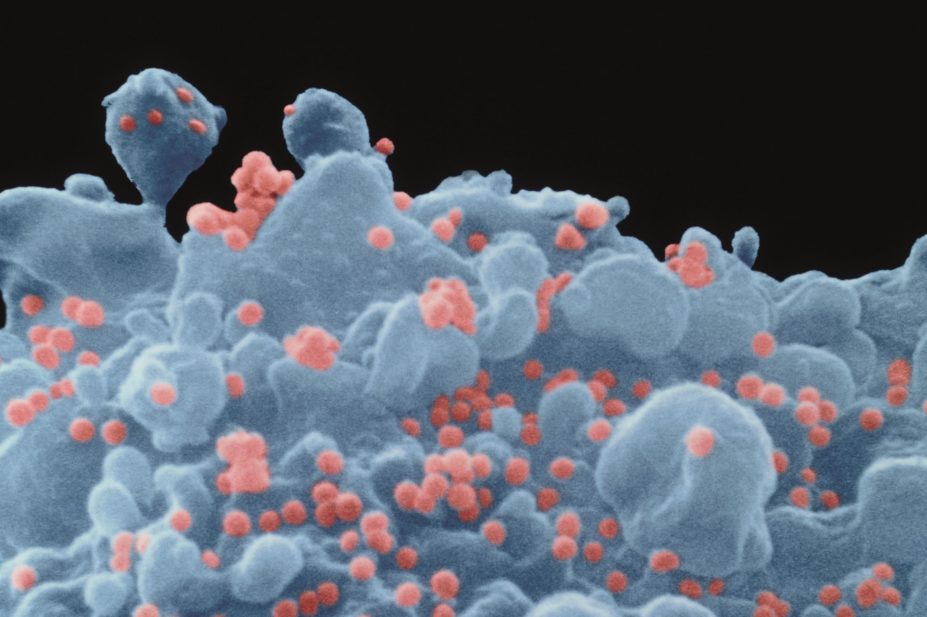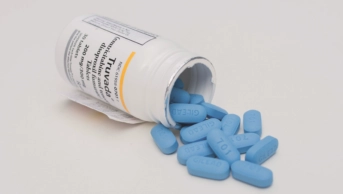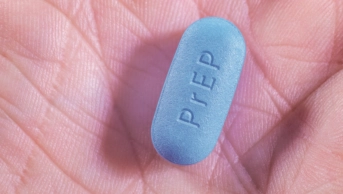
NIBSC / Science Photo Library
Adeno-associated virus (AAV)-based gene therapy is under investigation for its ability to protect against HIV infection. The best AAV vectors to date have been effective against 50–90% of viral isolates.
Now, a new drug candidate known as ‘eCD4-Ig’ — a fusion of CD4-Ig with a small CCR5-mimetic sulfopeptide — has efficiently neutralised 100% of a diverse panel of HIV-1, HIV-2 and simian immunodeficiency virus isolates, including many drug-resistant strains.
The drug was effective against much higher viral loads than typically occur in human transmission, and the protection afforded was remarkably durable. When administered to rhesus macaques, protection against infectious challenges lasted for more than 40 weeks.
These properties suggest that eCD4-Ig could be used as an HIV-1 vaccine, say the researchers in Nature (online, 18 February 2015)[1]
.


